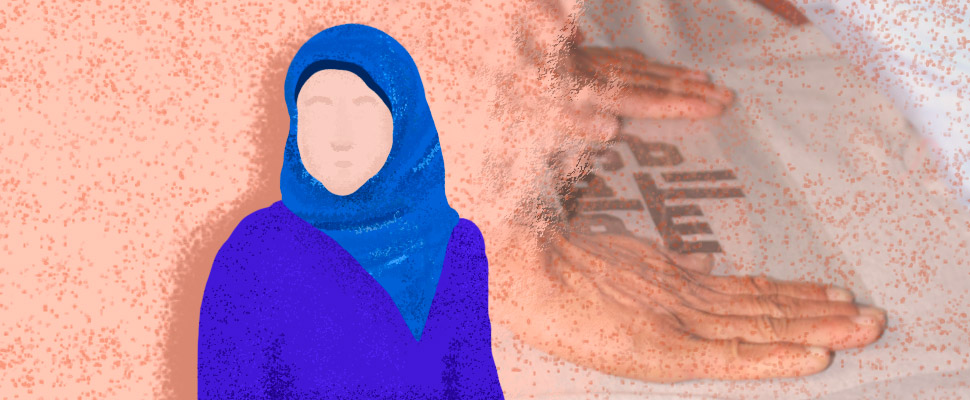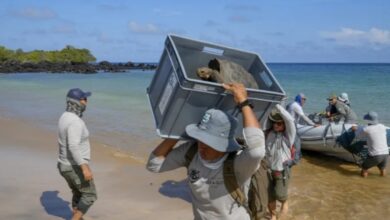Meet this young Muslim woman who’s breaking cultural barriers
Listen this article
With her community work, Marcela Cárdenas seeks to be an innovative social proposal within the textile market

There are countless professions, roles, and jobs in the world. However, there are very few who enjoy doing their job. According to a study conducted by the Gallup consultancy called State of the Global Workplace; Only 13% of employees worldwide feel comfortable with what they do. This is the case of Lina Marcela Cardenas, a young woman of 26 years of age, professional in international relations and political studies, who through her work and her faith, decided to break socio-cultural, religious, ideological and political barriers.
Leer en español: Una joven musulmana que rompe barreras culturales
Faith in Islamism is born in the midst of a Western context
In the midst of a search for answers, this young entrepreneur found in Islam a way of life that connected religion with reason: "I found a super revolutionary Koran, a Koran including gender, with rights to women. I found answers that broke with the stigmas that have always existed. For me that was very important", she said.
Thus, while she interacted more and more with other young people who voluntarily and consciously attended the mosque in the city of Bogotá, she identified more with this religion. However, I also had in mind the great controversies and disagreements that exist regarding some Muslim practices, which from the perspective of their Western environment are not very favorable, especially for women.
The debate on the Islamic veil, or hijab, is an issue that has always generated positive and negative comments. But Marcela has an open social debate in which she exposes her own will to wear this outfit: "The veil is a cultural shock. It is very different to use a scapular because the hijab is something that makes you more visible, but also more vulnerable to your society. So that's difficult, I have an open social debate. Let's go to the texts. The veil is not within the five pillars of Islam, therefore it is not obligatory. You can be a Muslim with or without a veil, "he said.
When Marcela converted to Islam she wanted to use the veil, but in her cultural context she did not find a place where she could get these clothes, so she adapted some outfits that could serve in the same way. Finally, she decided to undertake a new project that, in addition to covering these needs, would also give way to community work with the aim of creating a new social reality without stigmas or exclusivities.
Tawakkul is not only a word but a meaning
As this Bogota girl immersed herself more and more in the world of Islam, her desires and convictions became stronger. So, based on a need and desire to use the Islamic veil and seeing that getting this type of attire, was a very exclusive market in their cultural environment; She made the decision to undertake a project that for many was crazy, since the demand for a Muslim niche in a Western context has always been minimal.
Although the beginning of this new idea was not easy, because it started without any support, she faced what any entrepreneur fears at the beginning of an independent project: the fear of failure. Despite some doubts and difficulties regarding the creation of this idea, she found in the Koran a text that filled her with new hopes to continue with the creation of this project that would soon break with several cultural borders.
Thus was born Tawakkul, a brand that places its trust fully and exclusively in God: "I was thinking about it a lot, I had a hard time in my life, those emotional tests that one has. So at that moment, I knew a word in the Koran, a text that led me to trust in God fully, a word that condenses a meaning, an action of what it brings. That word was the best meaning for the brand, "she said.
In addition to simply making clothes for Muslim women and men, Marcela had an immense desire to spread a message of peace and reconciliation for her country. Inspired by her previous jobs at the National Democratic Institute (NDI), where she worked on two programs: a post-conflict program that dealt with human rights issues and the inclusion of victims of conflict and the innovation network program in Latin America, where she dedicated himself to collect testimonies in favor of the historical memory of the continent; The idea and desire to work with demobilized people of the FARC was born.
Now, Tawakkul's team is made up of Marcela, her brother Rubén Mauricio Cardenas, volunteer collaborators of different careers and a couple of spouses who, tired of living in a war that robbed their lives, made the decision to demobilize and be part of this project that reincorporated them back to a society and a dignified life.
"We were totally diverse. They do not know what Islam is. But we have the same idea of change and it is peace. Put a grain of sand and make visible that there are different options. Breaking the prejudices not only with them but also with my Islamic community. Make visible that joint community work, contributing to the country of which we are proud, even if we are not so visible, neither they nor us. But we understand that we share the same culture and the same country, the same problems, "he said.
A brand committed to social processes
Tawakkul, in addition to respecting a production chain with fair prices and wages, has within its next projects to contribute to those social processes that favor vulnerable groups: "What Tawakkul wants is to start teaching people the value of production textile, which are Colombian fabrics. Because for me, dressing is a political language. So, we want to start talking with our clothes, to give messages, but also that these messages are reflected in social contributions. "
LatinAmerican Post | Julieta Gutiérrez
Translated from "Una joven musulmana que rompe barreras culturales"





